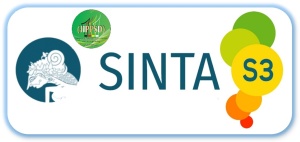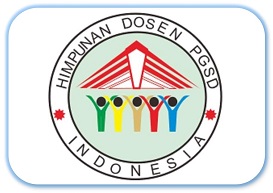Peningkatan Hasil Belajar dengan Model Problem-Based Learning di Kelas V Sekolah Dasar Negeri Kota Padang
 ), Yarisda Ningsih(2),
), Yarisda Ningsih(2), (1) Universitas Negeri Padang, Kota Padang
(2) Universitas Negeri Padang, Kota Padang
 Corresponding Author
Corresponding Author
DOI : https://doi.org/10.24036/jippsd.v7i1.122565
Full Text:
 Language : en
Language : en
Abstract
This research intended to assess the improvement of scale and floor plan learning outcomes using a Problem-Based Learning model (PBL) in Class V of SDN 12 Padang Besi Kota Padang. This research is a classroom action research (PTK) with 2 learning cycles. The subjects of the study were teachers and 24 students. Data analysis is carried out by qualitative and quantitative methods. The instruments used are RPP assessment sheets, observation sheets for teachers and students, test sheets in the form of questions and non-test sheets. Research result data: 1) The average score of the first cycle of RPP I 84.72% increased to 94.44% in the second cycle, 2) the average score of the first cycle of teacher implementation 85.71% increased to 96.42% in the second cycle, 3) the average value of the implementation of the first cycle of students from 85,71% to 92.85% in the second cycle, d) the learning outcomes of the first cycle of 84,02 increased to 90,02 in cycle II. The results of the study proved that using a Problem-Based Learning model (PBL) can improve learning outcomes on a scale and floor plan in Class V SDN 12 Padang Besi Kota Padang.
Keywords
References
Ananggih. 2017. “Pembelajaran Berbasis Masalah Untuk Meningkatkan Pemahaman Matematika.” Jurnal Kajian Pembelajaran Matematika 1 (2549–85458): 1.
Arikunto, Suharsimi. 2014. Prosedur Penelitian Suatu Pendekatan Praktik. Jakarta: Rineka Cipta.
Asrori, Mohammad. 2014. Penelitian Tindakan Kelas. Bandung: CV Wacana Prima.
Duda, Hilarius Jago, Herawati Susilo, and Peter Newcombe. (2019). “Enhancing Different Ethnicity Science Process Skills: Problem-Based Learning through Practicum and Authentic Assessment.” International Journal of Instruction 12 (1): 1207–22. https://doi.org/10.29333/iji.2019.12177a.
Dole, S., Bloom, L., & Kowalske, K. (2017). “Engaged Learning : Impact of PBL and PjBl with Elementary and Middle Grade Students". Interdisciplinary Journal of Problem-Based Learning, 11(2).https://doi.org/10.7771/1541-5015.
Faqiroh, Binti Zakkiyatul. 2020. “Problem Based Learning Model for Junior High School in Indonesia (2010-2019).” Indonesian Journal of Curriculum and Educational Technology Studies 8 (1): 42–48. https://doi.org/10.15294/ijcets.v8i1.38264.
Faturrohman. 2015. Model-Model Pembelajaran Inovatif. Jakarta: Ar-ruzz Media.
Hosnan. 2014. Penedekatan Saintifik Dan Kontekstual Dalam Pembelajaran Abad 21. Bogor : Ghalia Indonesia.
Isrok’atun dan Rosmala, Amelia. 2018. Model-Model Pembelajaran Matematika. Jakarta: Bumi Aksara.
Jerzembek, G., & Murphy, S. (2013). A Narrative Review of Problem Based Learning with School-Aged Children : Implementation and Outcomes. Educational Review, 65(2), 206-218. https://doi.org/10.1080/00131911.2012.659655.
Kemendikbud. 2014. Konsep dan Implementasi Kurikulum 2013. Jakarta: Kementerian Pendidikan dan Kebudayaan.
Kunandar. 2016. Langkah Mudah Penelitian Tindakan Kelas Sebagai Pengembangan Profesi Guru. Jakarta: Rajawali Press.
Mubarak, Ichsan dan Yetti, Ariani. 2021. “Penerapan Model Problem Based Learnig Untuk Meningkatkan Hasil Belajar Siswa Sekolah Dasar.” Jurnal Elemantary : Kajian Teori Dan Hasil Penelitian Pendidikan Sekolah Dasar 4 (2). https://doi.org/10.31764/elemantary.v412.5199.
Mulyanto, Heri, Gunarhadi Gunarhadi, and Mintasih Indriayu. 2018. “The Effect of Problem Based Learning Model on Student Mathematics Learning Outcomes Viewed from Critical Thinking Skills.” International Journal of Educational Research Review 3 (2): 37–45. https://doi.org/10.24331/ijere.408454.
Ningsih, Yarisda, Syafri Ahmad, and Risda Amini. 2019. “Implementation of Step Polya in the Problem Based Learning Model to Improve Learning Outcomes in Elementary School.” Journal of Physics: Conference Series 1387 (1). https://doi.org/10.1088/1742-6596/1387/1/012080.
Permatasari, Berti Dyah. 2019. The Influence of Problem Based Learning Towards Social Science Learning Outcomes Viewed from Learning Interest. International Journal of Evaluation and Research in Education (IJERE). Vol. 8. https://doi.org/10.11591/ijere.v8.i1.pp39-46.
Pratiwi, Vinni Dini, and Wuri Wuryandani. 2020. “Effect of Problem Based Learning (PBL) Models on Motivation and Learning Outcomes in Learning Civic Education.” JPI (Jurnal Pendidikan Indonesia) 9 (3): 401. https://doi.org/10.23887/jpi-undiksha.v9i3.21565.
Priatna, Nanang dan Yuliardi Ricki. 2019. Pembelajaran Matematika. Bandung: Remaja Rosdakarya.
Putra, Sitiatava Rizema. 2013. Desain Belajar Mengajar Kreatif Berbasis Sains. Yogyakarta: Diva Press.
Rusman. 2018. Model-Model Pembelajaran : Mengembangkan Profesionalisme Guru. Jakarta: Raja Grafindo Persada.
Sakinah, N dan Ningsih, Y. 2022. “Peningkatan Hasil Belajar Peserta Didik Pada Pembelajaran Tematik Terpadu Tema 8 Menggunakan Pendekatan Contextual Teaching And Learning (CTL) Di Kelas V SDN 16 Pandai Sikek Tanah Datar.” Jurnal Pendidikan Tambusai 6 (2): 15048–55. https://ejurnalunsam.id/index.php/jbes/article/view/6191.
Sanjaya,Wina. 2013. Strategi Pembelajaran Berorientasi Standar Proses. Jakarta: Prenada.
Siyoto,S dan Sodik,A. 2015. Dasar Metodologi Penelitian. Yogyakarta : Literasi Media Publishing.
Susanto, Ahmad. 2016. Teori Belajar Dan Pembelajaran Di Sekolah. Jakarta: Kharisma Putra Utama.
Trianto, Ibnu Badar. 2015. Mendesain Model Pembelajaran Inovatif Progresif Dan Kontekstual : Konsep, Landasan, Dan Implementasi Pada Kurikulum 2013 (Kurikulum Tematik Integratif / KTI). Jakarta. Jakarta: Prenada Media Group
 Article Metrics
Article Metrics
 Abstract Views : 389 times
Abstract Views : 389 times
 PDF Downloaded : 145 times
PDF Downloaded : 145 times
Refbacks
- There are currently no refbacks.

This work is licensed under a Creative Commons Attribution 4.0 International License.







